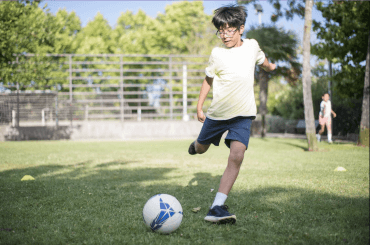Tim Belmont is a high school English teacher and technology specialist who considers himself naturally pretty focusable when it comes to working on something that has a bit of novelty to it. This is not an unfamiliar situation: trying something new is exciting, and therefore we’re motivated to dive in. Even so, Tim admits, “If there are other things I could be doing, my mind starts to wander to those instead. Focusable is a reminder that I need to pay attention to one task at a time.”
Overstimulation in today’s world sometimes looks exactly like what Tim describes. We can become impatient and distracted even when doing something we love. So what happens when, inevitably, you have to focus on things you might not be as excited about? Tim says, “Using Focusable helps me get into that more disciplined routine.”
Part of getting into a routine means that you have to build habits that work for you. It helps Tim when he reflects on his process – especially when he can go back later on and look at how he felt in the moment. “Having reflections built in reinforces the idea of starting a routine. It lets you see how you did something in the past and think about how you can do it differently. When the timer ends, you can actually think: how did I use that time? And you have a chance to immediately do it again.”
Getting into the habit of reflection can help us combat the effects of overstimulation – such as indecisiveness and impulsiveness. This is especially important in today’s classroom, where students (and adults!) are showing up to school with nervous systems likely already overloaded from stimulating experiences.
This change in brain chemistry has become all too common in the scope of modern living, and we have to do something first on the individual level to be able to combat it societally. It starts by thinking about how you use your time. “When introducing Focusable in class: be honest about the reasons for using it – to help you become aware of what you’re doing and make mindful decisions,” Tim says. “I don’t expect you to be perfect, I expect you to be practicing and improving.”



